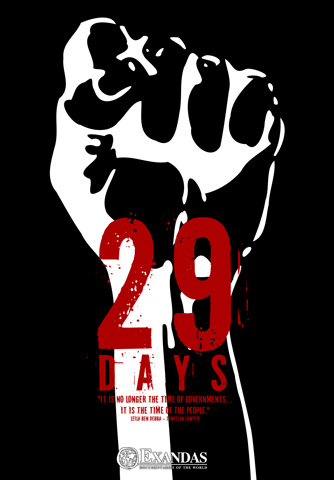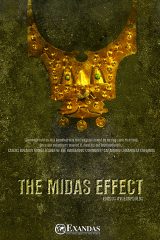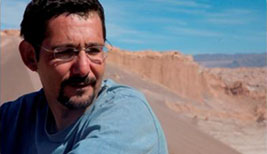
29 Days
Dir: Yorgos AvgeropoulosIt has been called the “Rebellion of Dignity”. The spark that was set off by the self-immolation of a 26-year-old in a Tunisian provincial town spread like fire in the entire country. The cry of the Tunisians who demanded freedom and fought for their right to work shook the entire world and gave, once again, a historic role to optimism. Ben Ali, the once almighty dictator, fled the country and his corrupt regime was unmasked. The first revolution of the 21st century is a fact and the Arab world will never be the same again.
“29 Days” goes back to the beginning, to the roots of the “Arab spring”. Through the soul-stirring testimonies of those who were in the middle of it and the rich archive that they salvaged from the period of the uprising, the documentary presents the chronicle of the 29 days that changed the course of history.
Watch the Film Now!
Choose the language you prefer and stream the film in Full HD from any digital device. Enjoy your private screening!
Buy the DVD
Public Screening
Are you interested in organizing a public screening of our film? Send us an email with your inquiry and we will be glad to assist you!
Educational / Library Use
Are you interested in enriching the library of your institution with our film? Contact us and let's create together an informed public!
- DURATION: 55min
- AVAILABLE IN THE FOLLOWING LANGUAGES: English | French | Greek
- AVAILABLE VERSIONS: English (55min) | French (55min) | Greek (55min)
- YEAR OF PRODUCTION: 2011
- Written & Directed by: Yorgos Avgeropoulos
- Produced by: Georgia Anagnou
- Director of Photography: Yiannis Avgeropoulos
- Production Manager: Anastasia Skoubri
- Research: Andreas Vagias
- Editing: Yiannis Biliris, Anna Prokou
- Original Music: Yiannis Paxevanis
PRODUCTION NOTES
“If, one day, people desire to live then fate will answer their call. And their night will then begin to fade and their chains break and fall.”
Abu al-Qasim al-Shabi, Tunisian Poet
A pure act of despair. Young Mohamed Bouazizi, a fruit vendor in the provincial town of Sidi Bouzid, in the south of Tunisia, stands before the local municipal building and sets himself on fire. He chooses this extreme way to denounce a regime that does not listen to his voice or to the voice of any other citizen who is suffocating amidst oppression, unjustness and poverty. “He represents all the young Tunisians who, at that age, could have a better job, and who reach the point where they would rather die than lead such a life”, stresses Law Professor Abdelwaheb Matar.
Bouazizi’s act is the final straw. His death leads to the protest of thousands of people who stand up for their right to live, against a regime that hides behind the guise of a free, secular and democratic state. However, the façade that has been diligently created by the country’s president, Ben Ali, and conveniently accepted by the international community is now shattered, unveiling a cruel dictatorship that has condemned its people to poverty.
“Work is a right, you gang of thieves”: this is the slogan that leads the insurgents to Sidi Bouzid. They rally for jobs, freedom and dignity and clash with the police for days and nights, turning the city into a warzone. Fire, teargas, stones, real fire… “I am prepared to die, I will stand in front of the bullets right now if I know that it will give people their freedom”, says Faizel Falhi al-Nazi, a participant in the clashes. His 22-year-old brother, Hussine, is the second youth to be killed in Sidi Bouzid.
The country’s government-controlled media try to hush up everything. However, this time the people know they must break the wall of silence which has banished previous uprisings to the realm of inexistence. The internet becomes yet another weapon in the hands of the rebels; with a stone in one hand and a cell phone in the other, they record everything that goes on and try to transmit it. Regime opposer and remote relative of the suicide, Ali Bouazizi, plays a decisive role in this effort. “With the hope that our voice may become public, we upload everything we record with our phones and cameras on the internet, calling for the participation of the biggest possible number of people”, he explains.
The uprising spreads to other provincial towns like lightning. “The regime tries to cause a bloodbath and starts to shoot. However, instead of suppressing the protests in one town, the unrest spreads to ten more places and the security mechanism of Ben Ali crumbles down”, says Yahyaoui Mokhtar. Yahyaoui, a former judge, openly confronted the regime 10 years ago, denouncing violations of justice from his position. He has since been targeted and is a militant fighter for democracy. “During the 23 years of Ben Ali’s rule, the regime condemned over 45,000 people for their actions and tens of fighters have been tortured to death in the country’s police stations and prisons”, stresses journalist Fahem Boukadous. The uprising finds him imprisoned too, having committed the crime of covering a previous insurrection, approximately 3 years ago. He is the last political prisoner to be freed after the fall of Ben Ali.
“To put it in one word, it is a dictatorship. In the full sense of the word”, says Ali Laraiedh, vice-president of the Ennahda Islamic Party. “A dictatorship based on the police and not on the army. That, in my opinion, is the worst possible tyranny”. Muslims pay the highest price, used as scapegoats by the regime that invokes the war against Islamic terrorism in order to be in favor with the West. Over 35,000 people have ended up in prison. Ali Laraiedh himself spent 14 years in isolation and wonders how he managed to remain sane and stand on his feet. “Europe knows. Europe gives Ben Ali money so that he can slaughter us. If not, where does all the money come from? It is European money “, says economist Fathi Jerbi, enraged.
In 1994, Ben Ali marries Leila Trabelsi. They both have large families with many brothers and sisters, cousins and best men and women who despoil the state. The Tunisians call them the “Trabelsi gang”. “They are not political figures, they are not interested in what is best for the people. They act in Tunisia like a gang, like a mafia!” denounces Abdelwaheb Matar. And Fathi Jerbi adds: “The Tunisians are working to make Ben Ali rich!” The Trabelsi privatize the entire public sector at a knockdown price, with themselves as buyers. Corruption has a tight grip around any financial activity and drowns all sense of social justice. Combined with the regime’s neoliberal policies, unemployment, especially amongst the young people who live in the inland –away from the touristic beaches and the eyes of the visitors– shoots up to over 35%.
The insurrection reaches Tunis. Shaken by all that is going on in the provinces, the lawyers are the first ones to dare protest in public in the country’s capital. “We are fed-up”, says Leila Ben Debba, one of the pioneers in the protests, “we have watched too many young people set themselves on fire, asking for jobs, asking for dignity”. The regime proceeds with the arrest of activists and bloggers, but also of a rap artist, El General, whose lyrics have become slogans in the mouths of the protesters. “30 people rounded up my house. They barged in fast and took me to the building of the Ministry of Internal Affairs. They interrogated me for three days, they wanted to know who was putting me up to all this. They also wanted me to stop mentioning the president and his wife in my songs”, he recalls. The protests and the unrest are growing more and more intense in the provincial towns of Tunisia. Thousands of people take to the streets. In a state of panic, the regime decides to crush the rebellion with bullets. The police open fire against the crowds, snipers wearing civilian clothes spread death amongst the protesters. The towns of Kasserine, Thala, Regueb, Sfax turn into slaughter houses. The massacres convulse Tunisia and the regime is already starting to run out of time. Ben Ali tries to appease the outcry through a television-broadcasted message in which he promises everything… But no one believes him any more.
The next day, the Ministry of Internal Affairs, a building which is a symbol of oppression and a place of brutal torture, is the locus of the biggest protest that has ever taken place in Tunis. “It is truly the people. It is not the politicians, nor the syndicates nor anyone. It is the people”, recalls Yahyaoui Mokhtar. One cry is uttered by thousands of people and vibrates through the entire protest: “Go Away!” Ben Ali and his family flee the country. The price is not low. The blood of 300 victims soaks the roots of the tree of change in Tunisia. The memories are still alive and Leila Ben Debba’s eyes fill with tears: “It is no longer the time of governments, it is the time of the people”.







